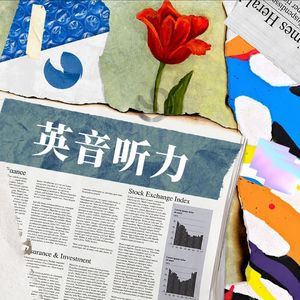From 53% to 38%: What's behind Argentina's poverty rate drop?
Host: Argentina is South America's second largest economy, but for decades it's been a byword for corruption and chaos, with three-figure inflation and an almost worthless currency. Javier Millet, the president elected in 2023, was widely mocked for his Trumpian rhetoric and promised to take a chainsaw to an oversized and inefficient administration. But has it actually worked?
Figures show Argentina's poverty rate, which was at just over 40% when he took power, surged to 53% in the first part of 2024, and then dropped just over 38%. Annual inflation plummeted to 66.9% last month, compared to over 276% a year earlier. So what's going on?
With me now is Fermin Koop, the journalist and commentator in Buenos Aires. Fermin, thanks for being with us. How did this drop in poverty come about?
Fermin Koop: Well, thanks for the invite, first of all. Great to be here. so the figures are quite impressive. We are at 38.1% of the Argentines under the poverty line. We used to be at 52.9% last year, so the drop is definitely quite significant. The main reason of this is the drop on the inflation rate. As you well said, Argentina is quite famous around the world because of its really skyrocketing inflation rates. We used to have figures around 300% a few years back. And Millet definitely took a big drop into that. The change saw, as you said.
There's a few things to bear in mind as well. The inflation index in Argentina is contested by some economists, so it's not perfect. There are a few figures in there that could be challenged. For example, the consumer price index is largely based on a basket of basic goods that comes from 2004. So there are researchers that say that nowadays this has changed quite significantly, so we need an upgrade of this basket. So we should take kind of a pinch of salt while looking at those figures.
Host: Well, I was going to say, does it actually feel like that? Because I've spoken to yourself as well, but others as well in the past who said, you know, it's just incredible how you have to go out and the money you've got in the morning is worth nothing in the evening. Has that changed?
Koop: Well, you're very right. Not that much. The feeling is still of an economy in quite a big of a mess. As you may know, Argentina is actually negotiating a new deal with the IMF right now. And Millet is traveling to the U.S. right now to agree on those details.
But the economy is still on a very unstable time with the currency still being quite weak and subject to foreign pressures as well. And it doesn't feel that the economy is doing well. The poverty levels are still quite high. 38% is still quite significant. And if you go out and speak to the people, they will tell you that they are not necessarily better off compared to last year.
Host: But Fermin, is what President Millet is doing, is it having an effect? Because it seems previous administrations didn't even achieve this.
Koop: Well, the roots of the problem are quite deep in the economy of Argentina. We are basically not exporting as much as we should, so we don't have enough foreign currency coming in in the country. So the reforms that Milley are doing are baby steps compared to the changes that Argentina need to do. But they are definitely taking shape.
I mean, it's something that nobody believed that he would be doing anything. As you well say, he was kind of a crazy guy with the change. So what we are seeing now with Elon Musk, basically. But the fact is that, well, we do have some initial results. But yeah, he has one year in office. He still got three more.
Host: I was going to say, see what happens next early days. But, Fermin, thank you so much for updating us on that. Furman Coop there in Buenos Aires.
Koop: Thanks for having me.
词汇表
Argentina [ˌɑːdʒənˈtiːnə] 阿根廷(南美洲国家)
byword [ˈbaɪwɜːd] 代名词,代表;俗语,谚语
corruption [kəˈrʌpʃn] 腐败,贪污;堕落
chaos [ˈkeɪɒs] 混乱,无序
inflation [ɪnˈfleɪʃn] 通货膨胀,通胀率
worthless currency [ˈwɜːθləs ˈkʌrənsi] 毫无价值的货币,不值钱的货币
mock [mɒk] 嘲笑,嘲弄;模仿
Trumpian rhetoric [ˈtrʌmpiən ˈretərɪk] 类似特朗普的言辞,具有特朗普风格的言辞
chainsaw [ˈtʃeɪnsɔː] 链锯;用链锯割(这里指大力整治)
oversized [ˌəʊvəˈsaɪzd] 过大的,超大号的,臃肿的
inefficient administration [ˌɪnɪˈfɪʃnt ədˌmɪnɪˈstreɪʃn] 低效的政府机构
take power 掌权,上台
plummet [ˈplʌmɪt] 暴跌,骤降
commentator [ˈkɒmənteɪtə(r)] 评论员,解说员
Buenos Aires [ˌbwenəs ˈaɪriz] 布宜诺斯艾利斯(阿根廷首都)
Argentine [ˈɑːdʒəntaɪn] 阿根廷人;阿根廷的
skyrocketing [ˌskaɪˈrɒkɪtɪŋ] 飞涨的,急剧上升的
contest [kənˈtest] 质疑;竞争,比赛
consumer price index [kənˈsjuːmə(r)][ˈɪndeks] 消费者物价指数
take a pinch of salt [pɪntʃ][sɔːlt] 持保留态度,有所怀疑
IMF (International Monetary Fund) 国际货币基金组织
better off 境况更好,生活更富裕
baby steps 非常小的一步或进展
take shape 成形,形成,有进展
🌟翻译,pdf及更多文本内容见公众号【琐简英语】,回复"1"可加入【打卡交流群】


BBC News|从53%到38%:阿根廷贫困率骤降的背后是什么?
4分钟 · 586·
586· 1
1
 586
586 1
1
HD915169w
3天前
0
这个停顿也太多了🥲

